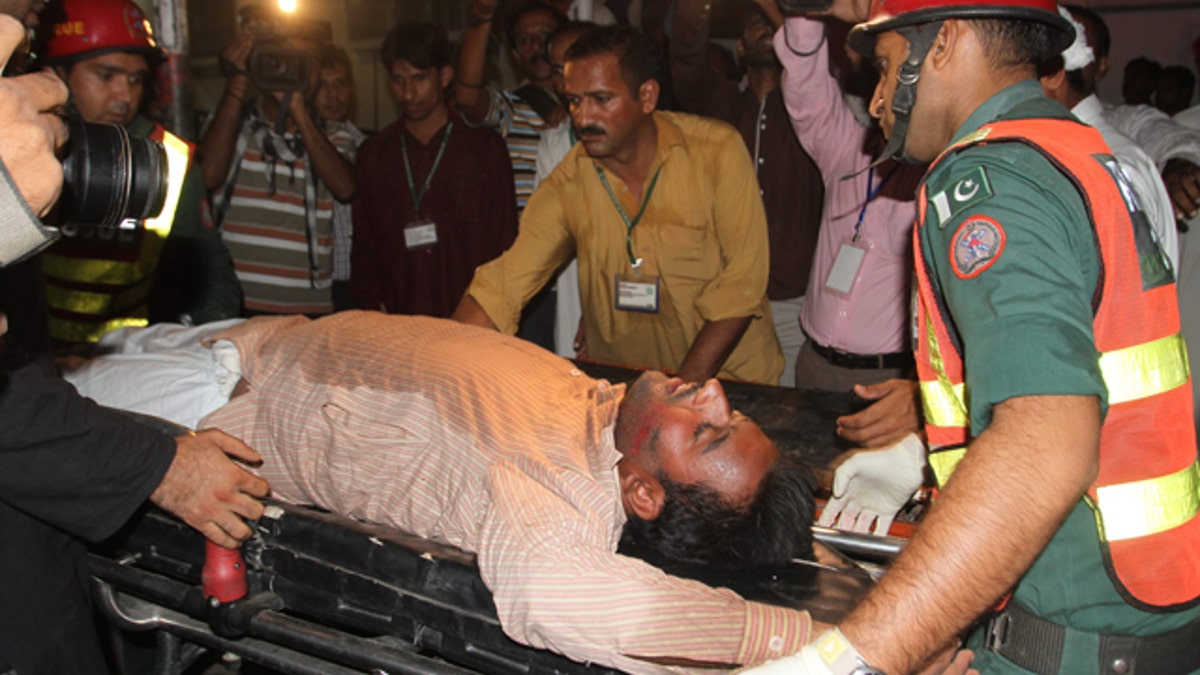
October 10, 2014: Pakistani rescue workers rush an injured person to a local hospital in Multan. (AP Photo/Asim Tanveer)
ISLAMABAD – A stampede at an anti-government rally in central Pakistan killed seven supporters of the country's famous former cricketer, now opposition politician, officials and his party said Saturday.
It was the second deadly incident related to the campaign of opposition protests led by cricketer-turned-politician Imran Khan. In August, Khan launched a bid to overthrow Prime Minister Nawaz Sharif's government over alleged fraud in the 2013 elections.
The stampede happened late Friday at a stadium in the city of Multan in eastern Punjab province, said government official Zahid Saleem. He blamed the protest organizers for the deaths.
The rally, including a speech by Khan, had just ended when Khan's supporters tried to push their way out of one of the gates at Qasim Bagh Stadium. The melee quickly evolved into a stampede in which seven people were crushed to death and about 40 injured. Khan had left the stadium before the incident.
The victims were brought to the city's main Nishtar Hospital. Police said over 40,000 people had attended the rally.
Khan's party blamed the local authorities.
"This incident took place because of the negligence of the local administration. We hold it responsible for this tragedy at our rally," said Shah Mahmood Qureshi, a senior party official who attended the funeral of two of the victims on Saturday.
Khan and fiery cleric Tahir-ul-Qadri have been leading parallel mass sit-ins in the capital, Islamabad, since August in a bid to oust Sharif's government.
The two claim there was vote rigging in the 2013 elections that brought Sharif to power in Pakistan's first-ever democratic transfer of authority. International monitors reported irregularities in the vote but have not questioned the outcome.
The Islamabad protests have now mostly fizzled out, after peaking on Aug 15, when about 70,000 people thronged the capital. In an incident on Aug. 30, the protesters tried to storm the parliament and prime minister's residence, forcing police to fire tear gas and rubber bullets.
Three people were killed in the melee and hundreds more were wounded. Sharif tried to find a negotiated settlement but talks with representatives of Khan and Qadri failed. The two opposition leaders said they will not end their protests until Sharif resigns.
The two month-long protests initially raised fears of a military intervention in Pakistan, which has largely been ruled by military dictators. Sharif was forced from office during his earlier term as prime minister in 1999, when the then-army chief Pervez Musharraf seized power in a coup.
Without ending the Islamabad sit-in, Khan has now started touring major cities to mobilize public opinion against Sharif. Many among his supporters are students and women.
